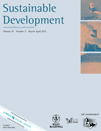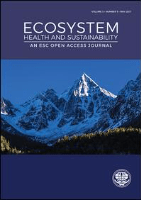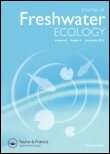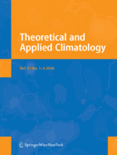
INTERNATIONAL JOURNAL OF BIOMETEOROLOGY
Scope & Guideline
Innovating Interdisciplinary Research in Biometeorology.
Introduction
Aims and Scopes
- Human Health and Climate Interactions:
Research exploring how climatic variables, such as temperature and humidity, influence human health outcomes, including heat-related illnesses, respiratory diseases, and mental health issues. - Agricultural and Livestock Productivity:
Studies assessing the effects of weather and climate on crop yield, livestock performance, and agricultural practices, including heat stress mitigation strategies and climate adaptability. - Bioclimatic Modeling and Environmental Assessment:
Development and application of models to predict the impacts of climate on biological systems, including phenological changes in plants and animals, and the assessment of urban microclimates. - Climate Change and Ecosystem Responses:
Investigations into how climate change affects biodiversity, ecosystem services, and the resilience of various species to changing environmental conditions. - Thermal Comfort and Outdoor Environments:
Research focused on understanding and improving thermal comfort in outdoor and indoor environments, particularly in the context of urbanization and climate extremes. - Public Health and Policy Implications:
Explorations of how biometeorological research informs public health policies and strategies for managing health risks associated with climate variability.
Trending and Emerging
- Climate Change and Health Impacts:
A growing volume of research is focusing on the direct and indirect health impacts of climate change, particularly how changing weather patterns exacerbate health risks such as heat stress and vector-borne diseases. - Machine Learning Applications in Biometeorology:
The use of machine learning and artificial intelligence in predicting biometeorological phenomena, including crop yield forecasting and health risk assessments, is rapidly increasing, showcasing the integration of technology in traditional biometeorological studies. - Urban Heat Island Effects:
Research on urban heat islands and their impacts on human health, comfort, and energy consumption is gaining traction, reflecting a heightened awareness of urbanization's role in climate dynamics. - Mental Health and Climate Linkages:
Emerging studies are investigating the connections between climate variability, extreme weather events, and mental health outcomes, highlighting the psychological impacts of environmental changes. - Ecosystem Services and Biodiversity Conservation:
Research focusing on the effects of climate change on ecosystem services and biodiversity is becoming more prominent, as the importance of conservation in the face of climate change is increasingly recognized.
Declining or Waning
- Balneotherapy and Spa Treatments:
Research related to traditional balneotherapy and spa treatments has decreased, possibly due to a growing focus on more direct health impacts of climate and weather rather than therapeutic practices. - Historical Climate Analyses:
Studies that focus solely on historical climate data without contemporary relevance or application to current biometeorological issues are becoming less prominent. - General Climate Variability Studies:
Research that does not link climate variability to specific biological or health outcomes is declining, as the journal emphasizes more targeted studies with clear implications. - Traditional Agricultural Practices:
There is a noticeable reduction in papers focusing exclusively on traditional farming methods without integrating modern agricultural science or climate adaptation strategies.
Similar Journals

Biogeosciences
Unveiling the secrets of our planet's biological and geological systems.Biogeosciences, published by COPERNICUS GESELLSCHAFT MBH in Germany, is a prestigious open access journal that has been a leading platform for innovative research since its establishment in 2004. With an impressive impact reflected in its Q1 rankings within both the Earth-Surface Processes and Ecology, Evolution, Behavior and Systematics categories, it caters to a diverse readership encompassing researchers, professionals, and students engaged in the life sciences and earth sciences. The journal's commitment to disseminating high-quality research is evident from its exemplary Scopus rankings, highlighting its role in fostering advancements and discussions in biogeoscience. With full open access options, readers worldwide can freely explore significant findings that contribute to our understanding of ecological and geoscientific principles. As the journal converges into its next decade, it continues to be an essential resource for those seeking to bridge the disciplines of biology and earth sciences.

SUSTAINABLE DEVELOPMENT
Advancing Knowledge for a Sustainable TomorrowSUSTAINABLE DEVELOPMENT is a premier academic journal published by WILEY, dedicated to the dynamic fields of Development, Renewable Energy, and Sustainability. With a strong commitment to advancing knowledge, this journal holds an impressive impact factor that places it in the Q1 quartile in both the Development and Renewable Energy categories for 2023, underscoring its significant influence in the social sciences. Boasting a Scopus rank of 4th out of 306 in Development and 26th out of 270 in Renewable Energy, it reflects a high level of scholarly excellence and relevance, achieving percentiles of 98th and 90th, respectively. Established in 1993, and set to continue through 2024, the journal serves as a crucial platform for researchers, professionals, and students to share groundbreaking insights and foster interdisciplinary dialogue. Although not an open-access journal, it offers a wealth of essential research that addresses the pressing challenges of sustainable development, contributing to a more sustainable future.

EcoHealth
Advancing Research at the Intersection of Environment and HealthEcoHealth, published by Springer, is a premier academic journal at the intersection of ecology and health, dedicated to advancing our understanding of the interconnections between environmental conditions and human health. Established in 2004, the journal aims to contribute to the rapidly evolving field by publishing innovative research that addresses the complexities of socio-ecological systems. With an impressive impact factor reflecting its standing in the Q2 category for both Ecology and Health, Toxicology, and Mutagenesis, EcoHealth is highly regarded among researchers and practitioners alike. The journal’s inclusion in top-tier Scopus rankings—125th out of 461 in Environmental Science _ Ecology and 77th out of 148 in Environmental Science _ Health, Toxicology and Mutagenesis—further underscores its significance in the scientific community. EcoHealth is committed to facilitating open discussions and interdisciplinary collaboration, making it an essential resource for students, researchers, and professionals seeking to explore the critical linkages between ecological integrity and public health.

Ecosystem Health and Sustainability
Elevating the discourse on ecosystem health and sustainability.Ecosystem Health and Sustainability, published by the American Association for the Advancement of Science, is a premier journal in the field of ecological research and sustainability. Established as an Open Access journal since 2015, it has made significant strides in disseminating impactful research that addresses contemporary challenges in ecosystem health within a global context. With an impressive impact factor reflected in its consistent placement in the Q1 category across multiple fields—including Ecology, Evolution, Behavior and Systematics, as well as Management, Monitoring, Policy, and Law—this journal serves as a vital resource for researchers, professionals, and students alike. Based in the United Kingdom, the journal has shown notable performance in Scopus rankings, positioning itself within the top percentiles across various ecological specialties. As it continues its convergence through 2024, Ecosystem Health and Sustainability is committed to fostering the exchange of knowledge and promoting the integration of science and policy to advance sustainable practices globally.

Inland Waters
Elevating Understanding of Critical Freshwater IssuesInland Waters, published by TAYLOR & FRANCIS LTD, stands as a prestigious scholarly journal dedicated to the critical examination of freshwater ecosystems and their management. With an ISSN of 2044-2041 and an E-ISSN of 2044-205X, this journal boasts a remarkable Q1 ranking in both Aquatic Science and Water Science and Technology for 2023, reflecting its significant impact in the field. Researchers and professionals can benefit from its comprehensive coverage of cutting-edge research, methodological advancements, and policy implications concerning inland waters. Committed to disseminating valuable knowledge in a vital area of environmental science, Inland Waters aims to foster collaboration and promote innovative solutions for sustainable water management practices. As it continues through its converged years from 2012 to 2024, the journal remains an essential resource for those dedicated to advancing our understanding and stewardship of freshwater environments worldwide.

Regional Environmental Change
Navigating the Challenges of Environmental ChangeRegional Environmental Change, published by SPRINGER HEIDELBERG, is a leading journal dedicated to the critical field of Environmental Science, specifically focusing on the global and planetary changes affecting our regional environments. Since its inception in 2005 and continuing through 2024, the journal has been a pivotal platform for disseminating cutting-edge research, insights, and methodologies that address pressing environmental issues. With an impressive Scopus rank, placing it in the top 30% of journals in its category, Regional Environmental Change (ISSN: 1436-3798; E-ISSN: 1436-378X) showcases high-quality academic articles that engage with the multifaceted impacts of environmental shifts, providing researchers, professionals, and students with vital knowledge and data. Although the journal does not currently offer Open Access, it remains a crucial resource for those committed to understanding and mitigating the effects of environmental change on regional ecosystems and communities.

Earth Systems and Environment
Bridging Disciplines to Understand Our Changing WorldEarth Systems and Environment, published by Springer International Publishing AG, is a leading peer-reviewed journal dedicated to the multidisciplinary study of natural and anthropogenic processes that shape the Earth's systems. With an impressive impact factor and consistently ranked in the Q1 category across various fields, including Computers in Earth Sciences, Economic Geology, and Environmental Science, it stands as a premier platform for researchers and professionals seeking to address pressing environmental challenges. The journal covers a wide spectrum of topics, from geology to global change, and emphasizes innovative methodologies and interdisciplinary approaches to understand and manage Earth systems. As an essential resource for scholars and practitioners, Earth Systems and Environment commits to excellence and facilitates open dialogue on critical issues affecting our planet.

JOURNAL OF FRESHWATER ECOLOGY
Connecting researchers with the pulse of freshwater ecology.JOURNAL OF FRESHWATER ECOLOGY, published by Taylor & Francis Inc, is an esteemed source of research dedicated to advancing the understanding of freshwater ecosystems. Established in 1981, this Open Access journal has provided a platform for innovative studies and groundbreaking articles relevant to the fields of Aquatic Science and Ecology. With its HIndex reflecting a commitment to quality scholarship, the journal is currently classified in the Q3 category for both Aquatic Science and Ecology, Evolution, Behavior and Systematics, indicating its respectable impact within these disciplines. The journal ranks within the 45th percentile in Ecology and the 41st percentile in Aquatic Science on Scopus, highlighting its relevance to a global audience of researchers and practitioners. By facilitating unrestricted access to research findings since 2017, JOURNAL OF FRESHWATER ECOLOGY aims to enrich our understanding of freshwater systems and their conservation, making it an essential resource for those invested in ecological research and environmental sustainability.

Ecosistemas
Fostering biodiversity insights and ecological innovation.Ecosistemas is a prominent Open Access journal published by the ASOCIACION ESPANOLA ECOLOGIA TERRESTRE, specializing in the field of ecology. Since its inception in 2001, it has dedicated itself to advancing ecological knowledge and research, fostering an inclusive platform for the dissemination of cutting-edge studies that span ecological interactions, sustainability, and biodiversity. The journal, based in Spain, has established its reputation with notable rankings such as Q3 in the field of Ecology and Q4 in Ecology, Evolution, Behavior, and Systematics, reflecting its commitment to quality research. With a Scopus Ranks position placing it in the 40th and 37th percentiles for its categories, Ecosistemas is integral to the academic community, serving researchers, professionals, and students alike. It provides a vital resource for those seeking to understand ecological dynamics and environmental challenges, facilitating open access to important findings and discussions that shape the future of our ecosystems.

THEORETICAL AND APPLIED CLIMATOLOGY
Advancing the Frontiers of Climate KnowledgeTHEORETICAL AND APPLIED CLIMATOLOGY is a prestigious international journal published by Springer Wien, dedicated to advancing knowledge in the field of climatology and atmospheric sciences. With an ISSN of 0177-798X and an E-ISSN of 1434-4483, this journal serves as a vital platform for researchers and professionals to disseminate essential findings and theoretical advancements in climate studies. Notably ranking in the Q2 category of Atmospheric Science with a Scopus rank of #44 out of 148, it holds a significant 70th percentile position in the field, underscoring its reputation and impact within the academic community. An established publication since 1986, it attracts contributions that explore both theoretical frameworks and applied methodologies, enhancing climate-related policymaking and real-world applications. As a non-open access journal, it provides depth and rigor in its peer-reviewed articles, making it an essential read for anyone engaged in climatology research, whether you are a seasoned expert or an emerging scholar eager to contribute to this dynamic field.